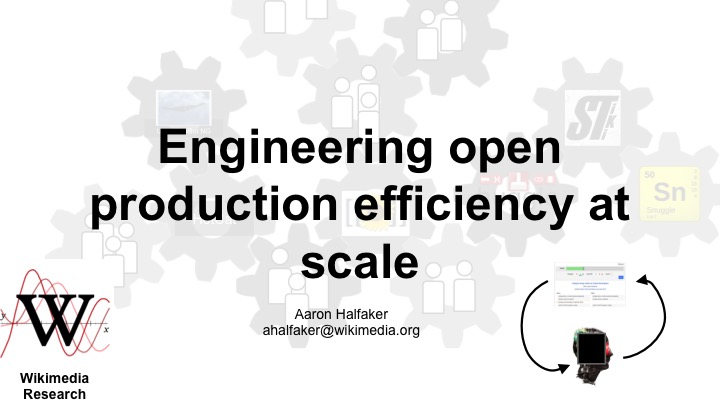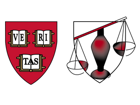We’ve created a world where information technology permeates our economies, social interactions, and intimate selves. The combination of mobile, cloud computing, the Internet Things, persistent computing, and autonomy are resulting in something different. This World-Sized Web promises great benefits, but is also vulnerable to a host of new threats. Threats from users, criminals, corporations, and governments. Threats that can now result in physical damage and even death.
In this talk Bruce Schneier — author and internationally renowned security technologist — looks back at what we’ve learned from past attempts to secure these systems, and forward at what technologies, laws, regulations, economic incentives, and social norms we need to secure them in the future.
 Download the MP3
Download the MP3
…or download the OGG audio format!
More info on this event here
February 16th, 2016
 Listen:or download | …also in Ogg
Listen:or download | …also in Ogg
Are you really “you” online?
We asked around for stories of digital alter egos — secret identities that people maintain on the web and try to keep separate from their real life identities.
And it turns out there are lots of reasons — some good, some nefarious, some maybe both — for someone to have alternate personas online.
On this episode we share stories of Catfishers, sock puppets, and digital doppelgangers.
Reference Section
Photo courtesy of carbonnyc
Music courtesy of Podington Bear, MCJackinthebox, Blue Dot Sessions, and David Szesztay
This episode featured Sara M. Watson, Jonmy Sun, and Vivek Krishnamurthy
Tweet us! Subscribe to us on Soundcloud, iTunes, or RSS.
This week’s episode produced by Daniel Dennis Jones and Elizabeth Gillis, with oversight from Gretchen Weber, and extra help from Adam Holland, Tiffany Lin, Rebekah Heacock Jones, Annie Pruitt, and Carey Andersen.
February 9th, 2016
Wikipedia, largely used as a synecdoche for open production generally, is a large, complex, distributed system that needs to solve a set of “open problems” efficiently in order to thrive. In this talk, I’ll use the metaphor of biology as a “living system” to discuss the relationship between subsystem efficiency and the overall health of Wikipedia. Specifically, I’ll describe Wikipedia’s quality control subsystem and some trade-offs that were made in order to make this system efficient through the introduction of subjective algorithms and human computation. Finally, I’ll use critiques waged by feminist HCI to argue for a new strategy for increasing the adaptive capacity of this subsystem and speak generally about improving the practice of applying subjective algorithms in social spaces. Live demo included!
About Aaron
Aaron Halfaker is an American computer scientist who is an employee of the Wikimedia Foundation. Halfaker earned a Ph.D. in computer science from the GroupLens research lab at the University of Minnesota in 2013. He is known for his research on Wikipedia and the decrease in the number of active editors of the site. He has said that Wikipedia began a “decline phase” around 2007 and has continued to decline since then. Halfaker has also studied automated accounts on Wikipedia, known as “bots”, and the way they affect new contributors to the site. He has developed a tool for Wikipedia editing called “Snuggle”, the goal of which is to eliminate vandalism and spam, and to also highlight constructive contributions by new editors. He has also built an artificial intelligence engine for Wikipedia to use to identify vandalism.
Links
These tell a story in order. The talk will cover a bit of each. Read from top to bottom and stop when you get bored or run out of time.
http://www-users.cs.umn.edu/~halfak/publications/The_Rise_and_Decline/halfaker13rise-preprint.pdf
http://www-users.cs.umn.edu/~halfak/publications/Snuggle/halfaker14snuggle-preprint.pdf
https://blog.wikimedia.org/2015/11/30/artificial-intelligence-x-ray-specs/

Also in ogg for download
More on this event here
February 2nd, 2016
Wikipedia, largely used as a synecdoche for open production generally, is a large, complex, distributed system that needs to solve a set of “open problems” efficiently in order to thrive. In this talk, I’ll use the metaphor of biology as a “living system” to discuss the relationship between subsystem efficiency and the overall health of Wikipedia. Specifically, I’ll describe Wikipedia’s quality control subsystem and some trade-offs that were made in order to make this system efficient through the introduction of subjective algorithms and human computation. Finally, I’ll use critiques waged by feminist HCI to argue for a new strategy for increasing the adaptive capacity of this subsystem and speak generally about improving the practice of applying subjective algorithms in social spaces. Live demo included!
About Aaron
Aaron Halfaker is an American computer scientist who is an employee of the Wikimedia Foundation. Halfaker earned a Ph.D. in computer science from the GroupLens research lab at the University of Minnesota in 2013. He is known for his research on Wikipedia and the decrease in the number of active editors of the site. He has said that Wikipedia began a “decline phase” around 2007 and has continued to decline since then. Halfaker has also studied automated accounts on Wikipedia, known as “bots”, and the way they affect new contributors to the site. He has developed a tool for Wikipedia editing called “Snuggle”, the goal of which is to eliminate vandalism and spam, and to also highlight constructive contributions by new editors. He has also built an artificial intelligence engine for Wikipedia to use to identify vandalism.
Links
These tell a story in order. The talk will cover a bit of each. Read from top to bottom and stop when you get bored or run out of time.
http://www-users.cs.umn.edu/~halfak/publications/The_Rise_and_Decline/halfaker13rise-preprint.pdf
http://www-users.cs.umn.edu/~halfak/publications/Snuggle/halfaker14snuggle-preprint.pdf
https://blog.wikimedia.org/2015/11/30/artificial-intelligence-x-ray-specs/
 Download the MP3
Download the MP3
…or download the OGG audio format!
More on this event here
February 2nd, 2016
Public Lab is an open community developing and using civic technologies to support the pursuance of community-defined questions and concerns. Public Lab introduces a model that incorporates open source R&D practices including transparent collaboration and iterative design, along with deliberative democratic governance, and practitioner empowerment through critical making. Community science can enable people to collect, interpret, and apply their own data to effect local change or participate in broader environmental research and decision-making.
We’ve conceptualized a tiered approach to project development, delineated by the scope of community objectives and the role of science in achieving those objectives. Examples of Public Lab projects from each tier demonstrate the versatility of community science, and the potential opportunity for it to facilitate public participation in environmental decision-making on multiple levels. In this session, we’ll discuss how participatory online communities can strategically support hyper-local goals and help to scale the ability for replicable change in how the public engages with decision-making processes.
About Shannon Dosemagen
A founder of Public Lab, Shannon is based in New Orleans and Cambridge (MA) as Executive Director of the non-profit. With a background in community organizing and education, Shannon has worked with environment and public health groups across the United States addressing declining freshwater resources, coastal land loss and building participatory monitoring programs with communities neighboring industrial oil facilities and impacted by the BP oil spill. In her current work with Public Lab, Shannon seeks to infuse traditional organizing methods of the environmental sector with new media technologies and tools to create actionable outcomes.
She has a MS in Anthropology and Nonprofit Management and has worked with nonprofits for over fifteen years. She is an Ashoka Fellow, a Senior Fellow of the Environmental Leadership Program a recipient of the Claneil Foundation Emerging Leaders Fund and a past Loyola University Institute for Environmental Communications Fellow. Shannon serves on advisory boards, councils or committees for the National Parks Conservation Association, World Economic Forum, Citizen Science Association, the Louisiana Public Health Institute Healthy Communities Coalition, and the Louisiana Bar Association.
About Public Lab
Public Lab is a community where you can learn how to investigate environmental concerns. Using inexpensive DIY techniques, we seek to change how people see the world in environmental, social, and political terms.
 Download the MP3
Download the MP3
…or download the OGG audio format!
More on this event here
January 26th, 2016
Public Lab is an open community developing and using civic technologies to support the pursuance of community-defined questions and concerns. Public Lab introduces a model that incorporates open source R&D practices including transparent collaboration and iterative design, along with deliberative democratic governance, and practitioner empowerment through critical making. Community science can enable people to collect, interpret, and apply their own data to effect local change or participate in broader environmental research and decision-making.
We’ve conceptualized a tiered approach to project development, delineated by the scope of community objectives and the role of science in achieving those objectives. Examples of Public Lab projects from each tier demonstrate the versatility of community science, and the potential opportunity for it to facilitate public participation in environmental decision-making on multiple levels. In this session, we’ll discuss how participatory online communities can strategically support hyper-local goals and help to scale the ability for replicable change in how the public engages with decision-making processes.
About Shannon Dosemagen
A founder of Public Lab, Shannon is based in New Orleans and Cambridge (MA) as Executive Director of the non-profit. With a background in community organizing and education, Shannon has worked with environment and public health groups across the United States addressing declining freshwater resources, coastal land loss and building participatory monitoring programs with communities neighboring industrial oil facilities and impacted by the BP oil spill. In her current work with Public Lab, Shannon seeks to infuse traditional organizing methods of the environmental sector with new media technologies and tools to create actionable outcomes.
She has a MS in Anthropology and Nonprofit Management and has worked with nonprofits for over fifteen years. She is an Ashoka Fellow, a Senior Fellow of the Environmental Leadership Program a recipient of the Claneil Foundation Emerging Leaders Fund and a past Loyola University Institute for Environmental Communications Fellow. Shannon serves on advisory boards, councils or committees for the National Parks Conservation Association, World Economic Forum, Citizen Science Association, the Louisiana Public Health Institute Healthy Communities Coalition, and the Louisiana Bar Association.
About Public Lab
Public Lab is a community where you can learn how to investigate environmental concerns. Using inexpensive DIY techniques, we seek to change how people see the world in environmental, social, and political terms.

Also in ogg for download
More on this event here
January 26th, 2016
In 1997, as a freshly-minted lawyer, Mariano-Florentino (Tino) Cuéllar joined the staff of the Treasury Department’s Office of Enforcement. Almost immediately, he was drawn into some of the fascinating issues that Treasury confronted at the time, from the regulation of electronic money to international policing and anti-corruption initiatives. In this talk, he reflects on his years at Treasury and discusses some of the connections between the challenges he encountered at Treasury then, and some of the dilemmas facing the world today.

Also in ogg for download
More info on this event here.
January 19th, 2016
In 1997, as a freshly-minted lawyer, Mariano-Florentino (Tino) Cuéllar joined the staff of the Treasury Department’s Office of Enforcement. Almost immediately, he was drawn into some of the fascinating issues that Treasury confronted at the time, from the regulation of electronic money to international policing and anti-corruption initiatives. In this talk, he reflects on his years at Treasury and discusses some of the connections between the challenges he encountered at Treasury then, and some of the dilemmas facing the world today.
 Download the MP3
Download the MP3
…or download the OGG audio format!
More info on this event here.
January 19th, 2016
In this talk Dr. Nettrice Gaskins — author and STEAM Lab Director at Boston Arts Academy — discusses her model for ‘techno-vernacular’ creative production as an area of practice that investigates the characteristics of this production and its application in STEAM (Science, Technology, Engineering, Art, Mathematics) learning.
Her research consists of a study involving workshops conducted between 2013 and 2014 that sought to examine the impact of the following combined methods a) culturally situated design, which connects vernacular art and crafts with standards-based STEM principles and allows users to simulate and develop their own creations; b) art-based learning, which is effective in stimulating the development of 21st century skills such as creativity, learning, and innovation; and c) educational applications of new technologies on underrepresented ethnic groups’ learning in STEAM.

Also in ogg for download
More info on this event here.
December 17th, 2015
In this talk Dr. Nettrice Gaskins — author and STEAM Lab Director at Boston Arts Academy — discusses her model for ‘techno-vernacular’ creative production as an area of practice that investigates the characteristics of this production and its application in STEAM (Science, Technology, Engineering, Art, Mathematics) learning.
Her research consists of a study involving workshops conducted between 2013 and 2014 that sought to examine the impact of the following combined methods a) culturally situated design, which connects vernacular art and crafts with standards-based STEM principles and allows users to simulate and develop their own creations; b) art-based learning, which is effective in stimulating the development of 21st century skills such as creativity, learning, and innovation; and c) educational applications of new technologies on underrepresented ethnic groups’ learning in STEAM.
 Download the MP3
Download the MP3
…or download the OGG audio format!
More info on this event here.
December 17th, 2015
Next Posts
Previous Posts
![]() Download the MP3
Download the MP3 Listen:
Listen:




